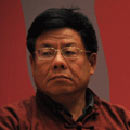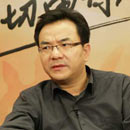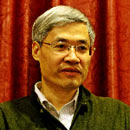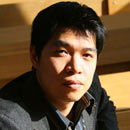

Traditionally, universities have been seen as bastions for the pursuit of knowledge. However, universities in present day China are often utilitarian and lifeless and over recent years, have been caught up in numerous scandals.
Last year, the EO teamed up with Sohu and the Goethe Institute to provide a platform for a special Sino-German discussion about the state of higher education.
We invited eight influential Chinese scholars to write about the state of university education and to propose constructive criticism about how the system could be improved and had their articles translated into German.
Likewise, with the help of the Goethe Institute in Beijing, we also invited eight German thinkers, writers and educators, including the Dean of Heidelberg University, to write about what they saw as the major challenges currently facing universities. These articles were translated from German into Chinese.
This is the first in what we hope will be many cross-cultural discussions hosted by the EO.
We'd also like to acknowledge the hard work of our partners in putting together this special feature: The Goethe Institute, Sohu and Xinhua News Agency.

Chinese universities have been losing their way during the recent period of rapid transformation and development. While they have shed their old Soviet style, they've failed to transition to a model that mirrors American institutions. Instead, what we see are government monopolized "diploma mills" that treat education like a business. Universities have become a place where certain interest groups reap huge profits. In fact, these kinds of educational institutions should not be referred to as universities, but rather identified as the burden that they really are.

Vocational universities should be equally viewed as normal universities, so that students going to vocational universities won't feel inferior. More education resources should be applied to support vocational education. Meanwhile, measures should be taken to reduce the income gap between managers and blue collar workers.

When talking about purposes of universities in China, people tend to use the standard of Peking University and Tsinghua University to apply to all universities. However, in the current era of mass higher-education, a single standard or purpose for all universities is a serious delusion.

Universities were initially introduced in China during a radical anti-traditional movement that centered on the idea "Down with Confucianism." Traditional Confucian education institutions such as academies that had been established during the Song dynasty, were quickly abandoned. Now, Confucianism bares little influence on universities 2,000 years later.

Although the national higher education entrance exam is separated from the civil service examination, university still serves as the producers of well-qualified individuals who will work for the government and other institutions after they graduate. Like luxury products, elite education in China can be shouldered by foreign universities or universities in Hong Kong, Macau and Taiwan.

There should be different types of higher education institutions to meet the needs to teach different kinds of skills. The development of different higher education institutions should be balanced and the communication and cooperation should be encouraged. The key is to create universities with unique skills to cater to specific segments of the population.

The guideline for university education should be changed. To improve students' creativity, we should improve teaching methods, change exam-focused education, remove the division of arts and science education and train creative teachers. Ideally, students should be encouraged to have more practical experiences and gain knowledge outside the classroom as well.

With their roots in the planned economy era, Chinese universities, like corporations before the economic reform, remain "an appendage of the government." Therefore, compared to universities in other countries, the current Chinese universities are "look the same from the outside but are very different on the inside." These changes to Chinese universities cannot happen on their own.

German universities are going through a hard time right now: they aim to educate more students than ever before, but are also undergoing their biggest reforma ever with the goal of becoming internationally first-class in scientific research. German universities are facing other challenges too: it is unacceptable in Germany to refuse any young students who wants to go to university; however "these principles are under great and increasing political pressure."

Education should serve the economy and politics. It's an expensive social affair, often supported mostly by public funding. However, we should take a further look on the practical functions of education, and most importantly, how education should promote discussion and reflection.

University education is not simply to get a diploma or vocational certificate. University education is an investment by a country, a society and by students. In a narrow sense, university education is a form of life insurance: a permanent foundation for what an individual can do for the society. University education is the time for students to be able to gain insight into their future capacity that will promote their career success upon graduation.

It’s necessary to have elite universities in Germany for a clear division of higher education institutions. There are about 10 or 20 top universities with researchers, good facilities, and international network that allow for basic research and research education, which further promotes their high standing. They, therefore, must establish a long-term plan to maintain their status and hand select the best students.

Nowadays, officials have been celebrating the construction of elite universities, however, this development is not necessarily a positive one because of the devaluation of education and the risk of poor-quality universities.

For traditional German education, applied science universities focus on practical courses, which are closely connected with corporations. They provide a good environment for efficient and successful study. Compared to most public universities, most nonpublic universities choose to identify as an applied science university.

Professional training should include courses that strengthen the ability of students to think critically, particularly through uncertain and highly complicated situations. University education should improve the professional skills while focusing on encouraging creativity.

Communication and cooperation are the basic principles of internationalization. It usually starts from communication programs to find an appropriate partner school. A study abroad semester should be a regular part of the teaching as well, if possible. Universities should advertise themselves in a way that attracts foreign students and offer various types of research to accomplish the goal of internationalization.